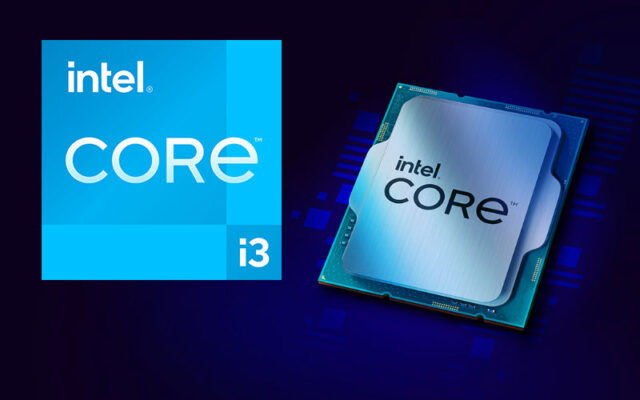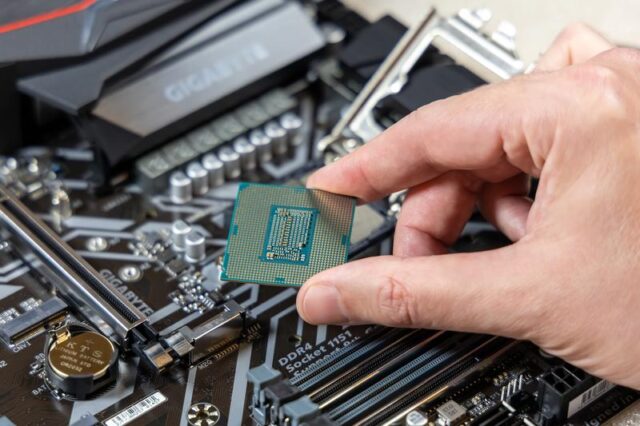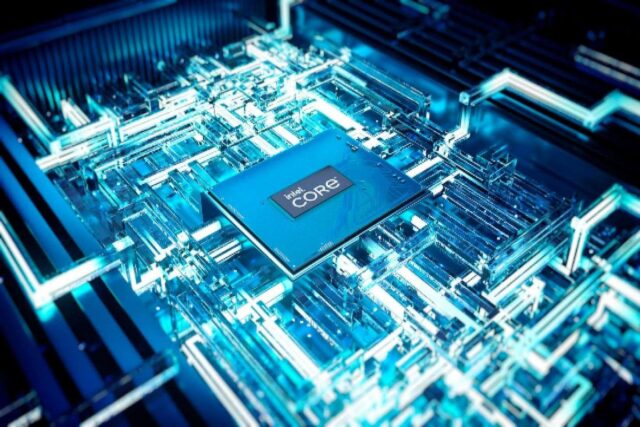
Are Core i3 CPUs the best choice if you’re looking to get into gaming? That’s the question we’ll be aiming to answer in this blog post. From exploring the benefits and downfalls of using a Core i3 processor to helping you decide if it’s right for your gaming needs, we’ve got you covered! So, let’s get started on our quest for ultimate gaming PC performance!
Core i3 Processor: Explained

The Intel Core i3 processor is an affordable processor capable of meeting the needs of everyday computer users. It is an entry-level Intel processor that forms part of the company’s Core series. i3 processors are great for basic computing needs and mid-range multitasking, however, their gaming performance is mediocre compared to more expensive processors such as the i5 or i7.
At the heart of a Core i3 processor is the integrated graphics card which provides essential graphical support for your chosen applications. This chip usually provides a fairly decent level of performance for basic computing tasks, but it does not have sufficient power to handle modern gaming titles at high settings. It can still run recent titles on low settings but may struggle with some older games as well as titles requiring lots of video memory or CPU cores such as strategy games and MMORPGs.
For those who require higher levels of gaming performance, Intel also offers their incredible “K” series processors which are unlocked with higher clock speeds than other models, allowing you access to more advanced configurations and better-sustained performance when playing demanding games.
Advantages of Core i3 Processors
The Intel Core i3 processor is a good entry-level processor that provides excellent performance at an affordable price. It is a dual-core CPU and packs enough power to be able to run most games. It should even have enough power for gaming on more demanding titles, with the right video card and graphics settings.
The processor also offers good multi-threaded performance, making it ideal for multitasking, and the operating systems offer Multi-Window support. It also has Intel Hyper-Threading technology, which enables it to exist two threads or processes simultaneously on one core, helping provide smoother multitasking performance by enabling processors to better manage multiple requests from programs and apps running simultaneously. This also helps reduce lag when running multiple tasks at once, as well as reducing in-game stuttering or framerate dips during heavy load scenarios when several applications are running in the background.
Another benefit of Core i3 processors is that they are energy efficient compared to other CPUs, resulting in better battery life if you have a laptop with them fitted. In addition, these CPUs come with features such as Intel’s Virtualization Technology instructions, allowing you to run multiple virtual machines concurrently without negatively impacting your system’s performance too much – a key advantage of using Intel processors over their AMD counterparts.
Bottom line – if you are looking for an affordable entry-level processor that will handle most gaming needs without too much fuss (and without breaking the bank) then a Core i3 processor should fit your needs perfectly!
What are the drawbacks?

The disadvantages of an Intel Core i3 processor for gaming include lower clock speeds, and fewer cores and threads. i3 processor is designed for efficient, everyday computing such as word processing or web browsing. It does not have nearly enough power to handle the demands of gaming, such as high-resolution graphics, physics calculations, and streaming media.
As a result, upgrading to a more powerful processor is necessary if you want your system to be able to support modern games at maximum settings. Core i3 processors are best suited to casual gamers on a budget who want an entry-level gaming experience and don’t need the latest graphics technology or the highest resolutions. These users can get by with a lower-end graphics card with modest graphics settings at lower resolutions.
For serious gamers and anyone who wants ultra-high-definition graphics, a Core i5 or higher is recommended. The additional cores and threads will allow for better multitasking capabilities as well as improved processing power for games with complex engines built specifically for higher-performance CPUs.
Pros and Cons Summarized

Pros:
-Affordable Price: Core i3 processors are much cheaper than their i5 and i7 counterparts, so they make ideal options for users who want to maximize their performance per dollar spent.
-Decent Performance: Despite their lower price tag, i3 CPUs still offer decent gaming performance for entry-level PCs.
Cons:
-Limited Overclocking: Most Core i3 processors don’t come with overclocking capabilities which means users won’t be able to squeeze out extra frames per second from their processor beyond factory settings.
-Lower Single/Multi Thread Performance: Higher clock speeds, and higher core/thread counts usually found in Intel’s more expensive CPUs can help with applications or games that require multi cores or multi-threads that a Core I3 CPU won’t provide.
What are the alternatives?
When it comes to gaming, many people want the most power they can get for the lowest price. But, unfortunately, a powerful processor is often one of the biggest investments in a gaming PC. If you’re looking to save money and still get enough power to play your favorite games, then you may want to consider alternate processors such as AMD’s Ryzen 3 or Intel’s Core i5 or i7 lines.
The Ryzen 3 series CPUs offer excellent value for gamers who are working from a smaller budget. Combining four CPU cores and eight threads of computing power with speeds up to 4GHz, these processors are more than capable of playing the most popular titles without any trouble. Additionally, AMD offers integrated Radeon Vega graphics that make it easy to find entry-level video cards if you don’t plan on investing in one from Nvidia or AMD.
For those who can afford it and are willing to spend a little more money on their PC build, Intel’s i5 and i7 CPUs can deliver plenty of gaming performance as well. Featuring anywhere from four to six cores and 8MB-16MB of cache memory, these high-end processors can do anything you throw at them with ease — provided that your system also has a great video card setup like an NVIDIA GeForce RTX 2060 Super or AMD Radeon RX 580.
If you’re not willing to buy an expensive processor like the Ryzen 9 3900X or the Intel Core i9 10900K but still want enough power for gaming sessions without breaking your budget, then any CPUs from either manufacturer’s mid-range lines should do just fine too. The 6th generation Intel Core i5 6400 and the 7th generation Ryzen 5 1600X are both good choices for entry-level gamers aiming for some mild 1440p performances without spending too much money on hardware.
Conclusion
In conclusion, Core i3 processors are good enough for entry-level PC gaming, but for higher-end gaming, the best choice is a mid to high-end i5 or i7 processor. For budget users who still require a processor that can cope with gaming demands, Intel’s Pentium and AMD’s Ryzen 3 ranges offer competitive options. For content creators who require computational power beyond what games demand, then a Core i7 is likely to be necessary. Ultimately, the choice of CPU will depend on individual requirements and budgets.












